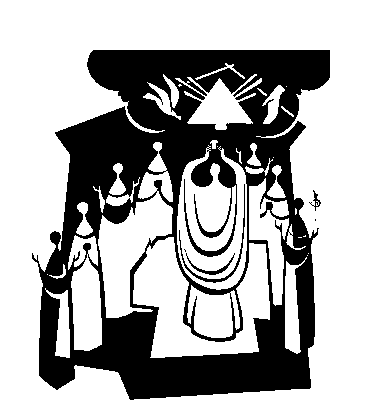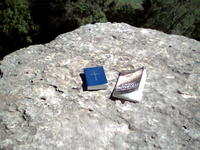
"But as for me and my household, we will serve the Lord." - Joshua 24: 15b
I have to admit that I am distressed by today's decision concerning Beth Stroud and even more disconcerted about the ruling that a pastor-in-charge has the sole authority to determine a person's readiness to affirm vows of membership.
I am a youth pastor who feels very called to do what I do. I love to share the love of Christ with teenagers. Shoot, I even enjoy lock-ins, which might put me somewhere in the ranks of madness or sainthood at some point.
Given the kids I work with I know that I come into contact with teens who are either struggling with their sexuality or consider themselves to be gay/lesbian or bisexual. Some may even be practicing. I don't know the answer to that, it hasn't come up. But I know that I, as their youth pastor WOULD NEVER tell them that they are not a valuable part of our youth group. In a world where they face enough places of exclusion and fear- our youth room is NOT one of those places.
In fact when I look into the face of each of my youth- not just my white kids, or my "good kids" (whatever that might mean), or my straight kids- I don't see those labels, those aren't labels in our group- I just simply see the face of a child of God.
I love all my kids and I see the potential that each one possess and I see the gifts each one brings to our youth group.
A HYPOTHETICAL SITUATION
If a teenager who is going through confirmation shared with a pastor that he/she was gay, ought that pastor confirm them or baptize them on Confirmation Sunday? Let's assume this teenager has grown up in the same church all their life, their family attends there, there friends attend there, and have been an active part of the congregation all their life. On that day- the day when confirmands stand before the church and cross over as "members" of the congregation and take the vows for themselves- should a pastor have the right to deny that person full membership into the church (assuming the teenager has been an active participant and productive participant since childhood)?
My answer is, how could we do otherwise? My thought is that God has blessed that teenager with a community who has up until that point- loved and nurtured and discipled. If the pastor decided to deny that teenager the right to become a member that pastor is denying the community part of it's body.
I find the decision today to be horribly misguided. But I am not on the Judicial Council, nor would I really want to be. I know many would disagree with my stance. But for me and my household (youth group), we'll serve the Lord the best way we can- by not excluding anyone from our safe and Christ centered youth room. But by being there for one another, celebrating our love for one another even in the midst of our differences.













































